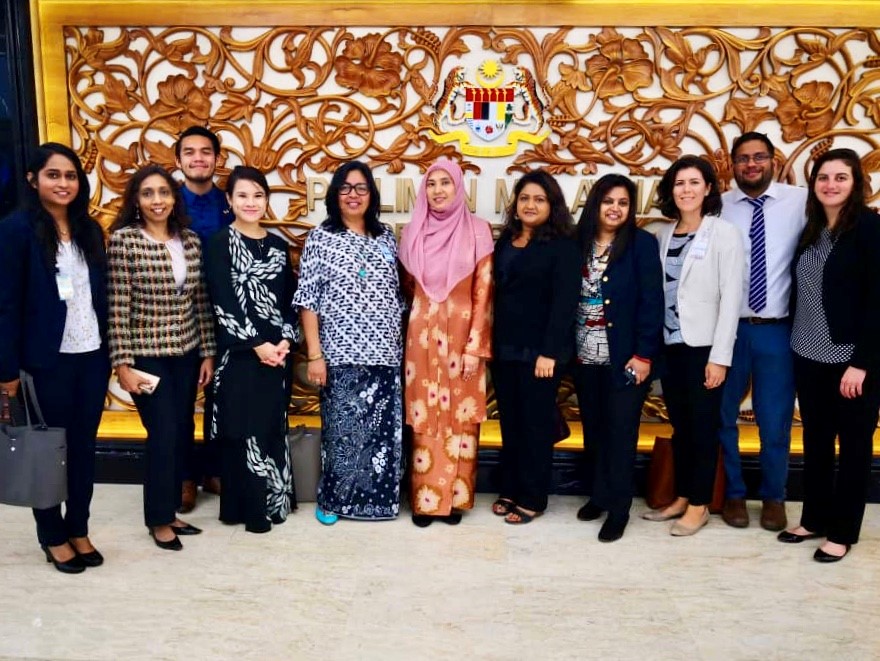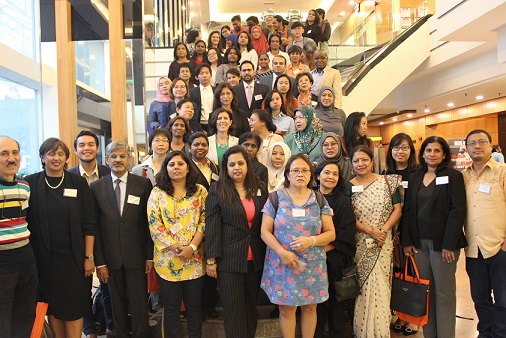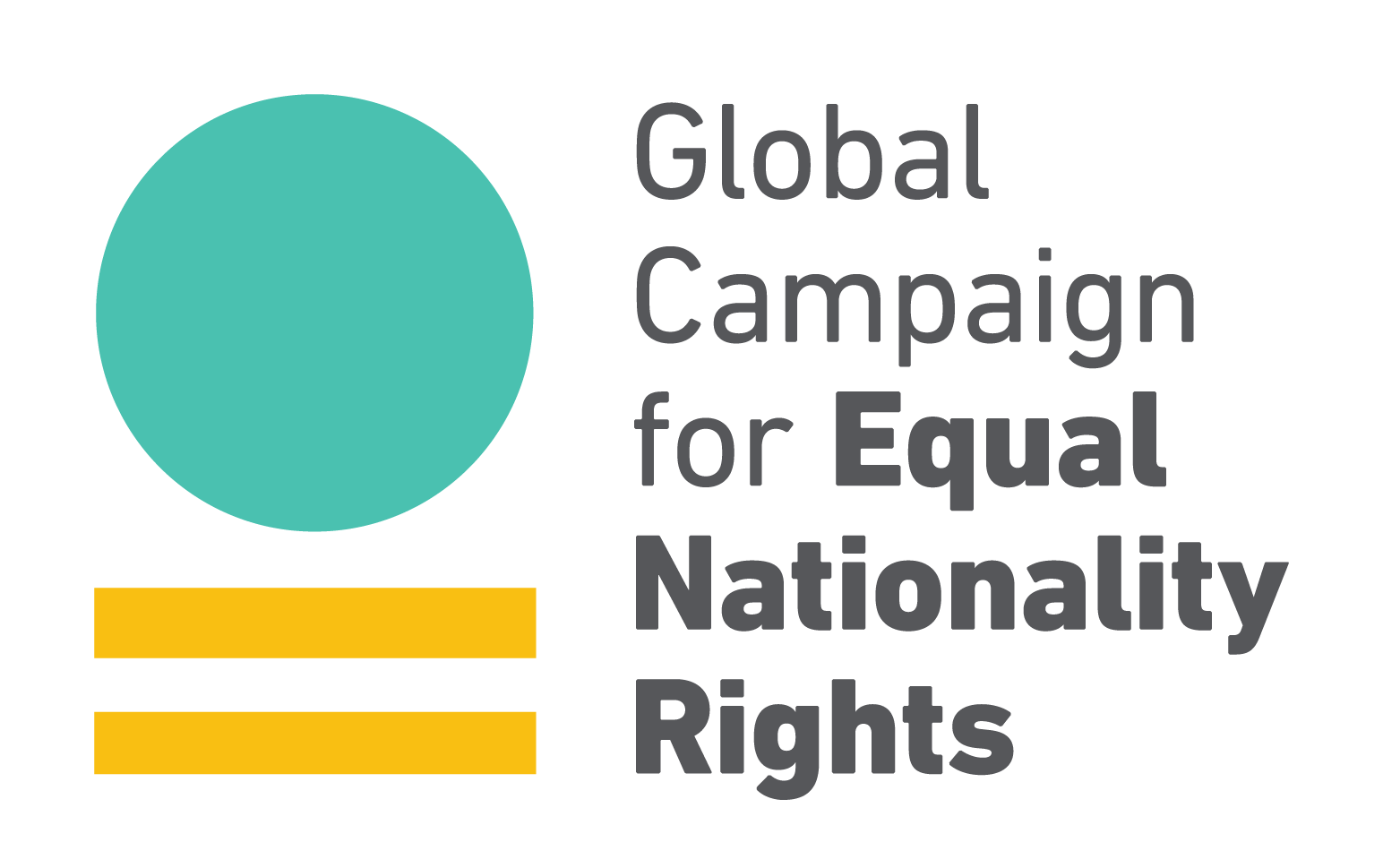Malaysian Civil Society Calls for Government Action to Uphold Equal Nationality Rights for Women and Men
Following the Malaysian National Consultation on Achieving Equal Nationality Rights for Women and Men, Malaysian civil society are calling for the new Pakatan Harapan government to enact reforms to uphold the equal right of Malaysian women and men to confer nationality on children and spouses. The groups’ appeals are outlined in thirteen recommendations submitted to government, which include Constitutional reforms required to achieve gender-equal nationality rights, as well as policies and procedures for accountability and temporary measure to address rights violations experienced by affected persons pending reform.
 Presently, Malaysian men have the right to confer nationality on children born in wedlock both inside and outside Malaysia without exception. While Malaysian women have the right to confer nationality on children born inside Malaysia, they are denied the right to confer nationality on children born abroad. Gender discrimination in the law also extends to Malaysian men, who cannot confer nationality on children born outside of legal marriage. Women are also denied the right to confer nationality on spouses on an equal basis with Malaysia men. Foreign spouses of Malaysian men are entitled to be registered as citizens, with the fulfilment of specific criteria, including two years residence in Malaysia. Spouses of Malaysian women only have the option of applying for citizenship by naturalization – the same as an individual without family ties to Malaysia – which includes a ten-year residency requirement.
Presently, Malaysian men have the right to confer nationality on children born in wedlock both inside and outside Malaysia without exception. While Malaysian women have the right to confer nationality on children born inside Malaysia, they are denied the right to confer nationality on children born abroad. Gender discrimination in the law also extends to Malaysian men, who cannot confer nationality on children born outside of legal marriage. Women are also denied the right to confer nationality on spouses on an equal basis with Malaysia men. Foreign spouses of Malaysian men are entitled to be registered as citizens, with the fulfilment of specific criteria, including two years residence in Malaysia. Spouses of Malaysian women only have the option of applying for citizenship by naturalization – the same as an individual without family ties to Malaysia – which includes a ten-year residency requirement.
From July 25-26, over ninety individuals representing over twenty civil society organizations convened in Kuala Lumpur to discuss the negative impact of gender discrimination in Malaysia’s nationality law and consider action needed to achieve reform. The participants also learned from regional activists from Bangladesh, Brunei, Indonesia, Nepal and Pakistan, who shared lessons learned from recent and ongoing nationality law reform campaigns in these countries. Malaysia is one of only two countries in the ASEAN region, along with Brunei, and one of only twenty-five countries globally with nationality laws that discriminate on the basis of gender in terms of a citizen’s ability to confer nationality on their children.
On the sidelines of the National Consultation, the organizers briefed parliamentarians and national media, as well as representatives of several embassies, to inform Malaysia’s upcoming review of its international human rights commitments, as part of the United Nations Human Rights Council’s Universal Periodic Review process.
Malaysia’s upcoming review of its international human rights commitments, as part of the United Nations Human Rights Council’s Universal Periodic Review process.
The Federal Constitution of Malaysia (Article 8), which promotes equality and prohibits discrimination, is undermined by the prevalence of gender discrimination in the country’s nationality law, which also contravenes specific provisions that are central to the “object and purpose” of the Convention on the Elimination of All Forms of Discrimination Against Women and the Convention on the Rights of the Child, both of which Malaysia has ratified.
By denying Malaysia citizens equal nationality rights because of their gender, the government is violating citizens’ right to non-discrimination and equal protection of the law. Gender discrimination in Malaysia’s nationality law can further result in family disintegration, while also depriving affected persons of access to: education; healthcare; employment; inheritance; property rights; civil and political rights; freedom of movement. Some children and non-citizen spouses of Malaysian women, as well as children born out of wedlock to Malaysian men, are rendered stateless, due to gender discrimination in the law. Some affected persons are left in a state of citizenship limbo, waiting for years for decisions on citizenship applications.
This discrimination negatively impacts the country as a whole, inhibiting national development and the achievement of the Sustainable Development Goals (SDGs).
- “Malaysian women want equal rights to confer citizenship to their children,” The Star (Malaysia), August 3, 2018.
- “‘Nationality laws are unfair,’” The Star (Malaysia), July 26, 2018.
- “Citizenship: Give equal rights to both men and women, urges lawyer,” Free Malaysia Today, July 25, 2018.
- “Groups want end to gender discrimination in nationality laws,” Malay Mail, July 25, 2018.
- “Citizenship woes: Rights groups, Bar to submit recommendations,” Free Malaysia Today, July 25, 2018.
- “Unequal Nationality Rights,” BFM Radio 89.9, July 31, 2018.

